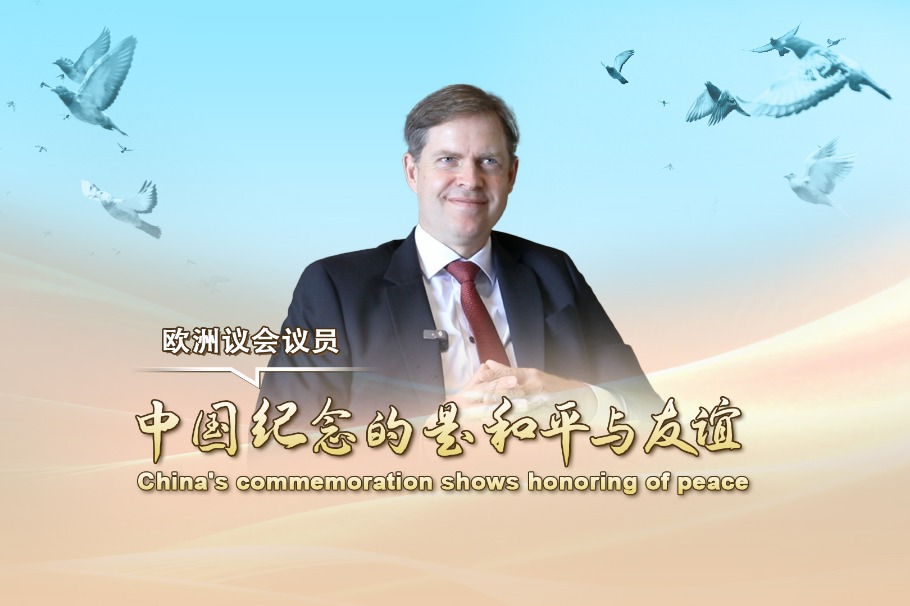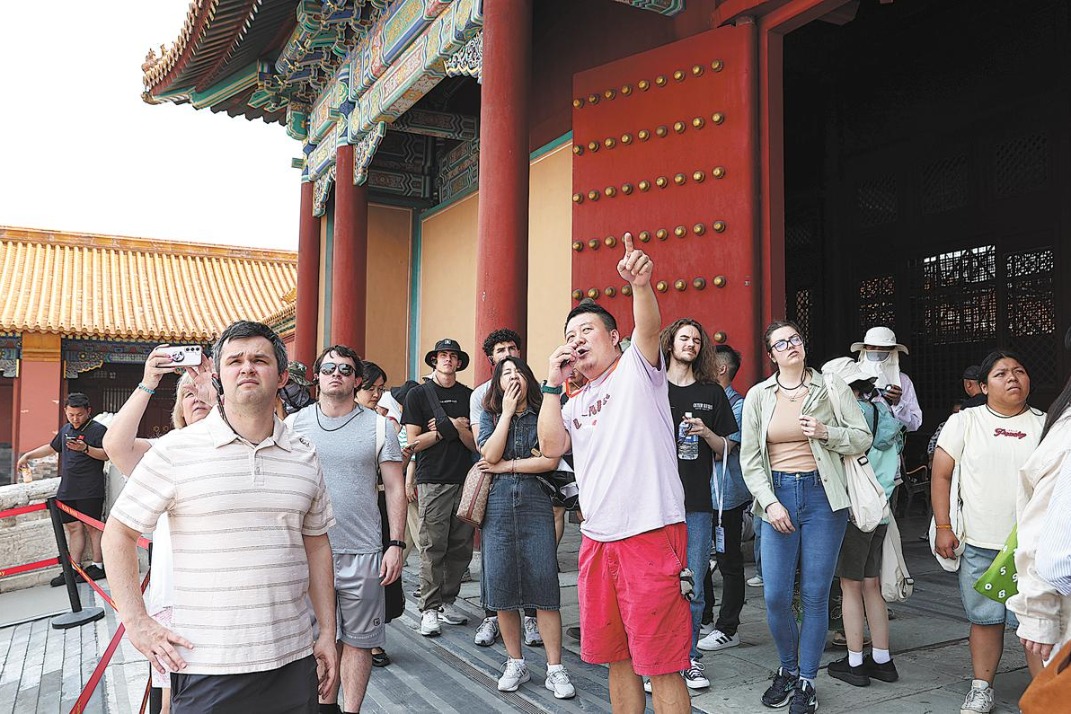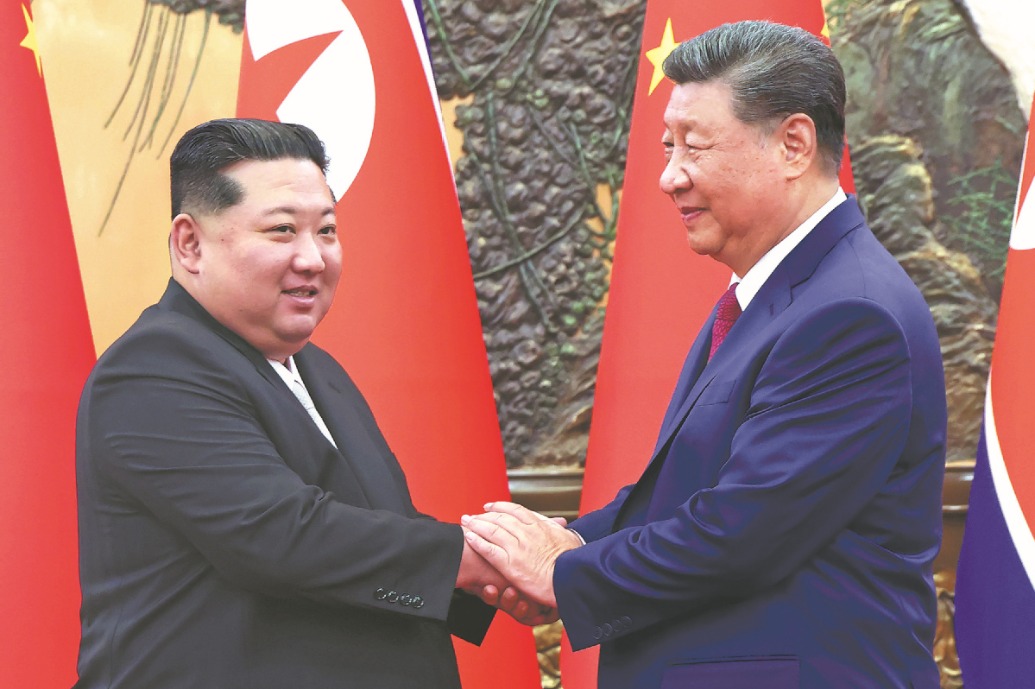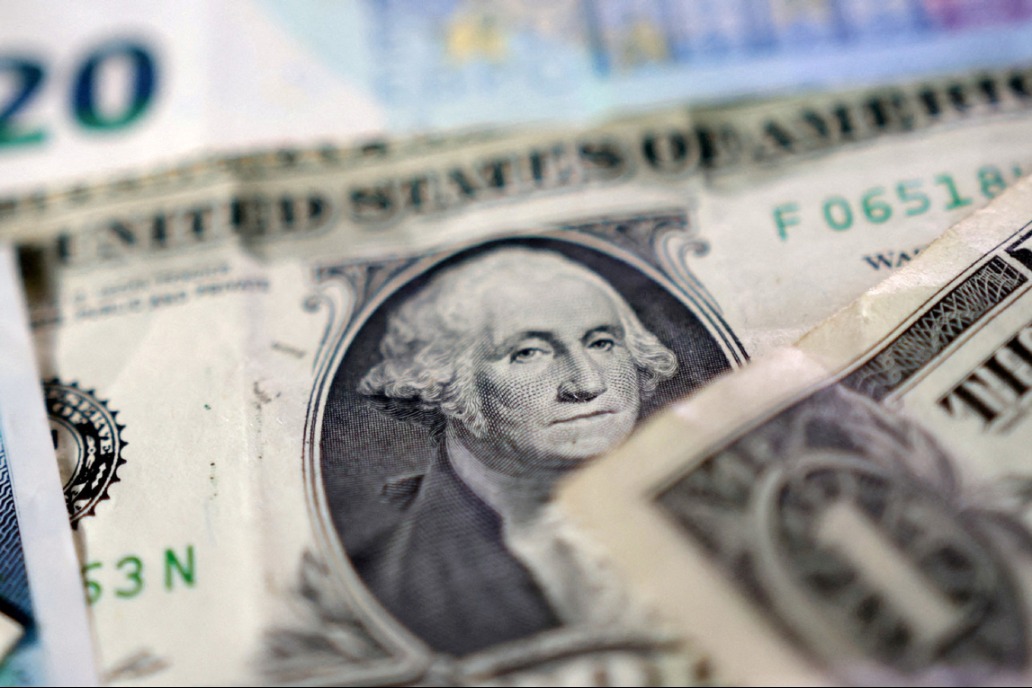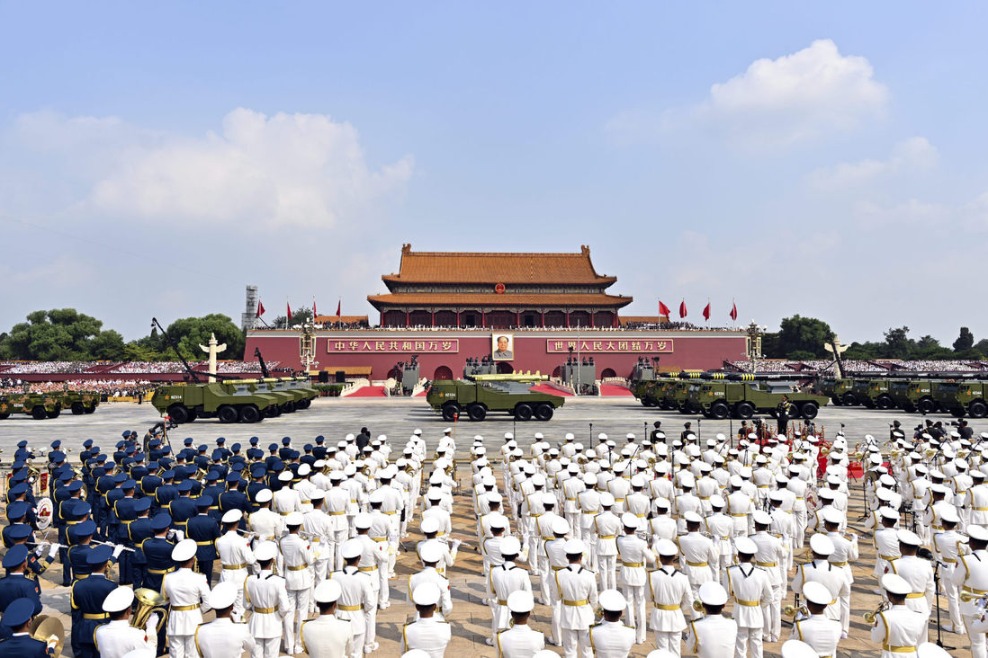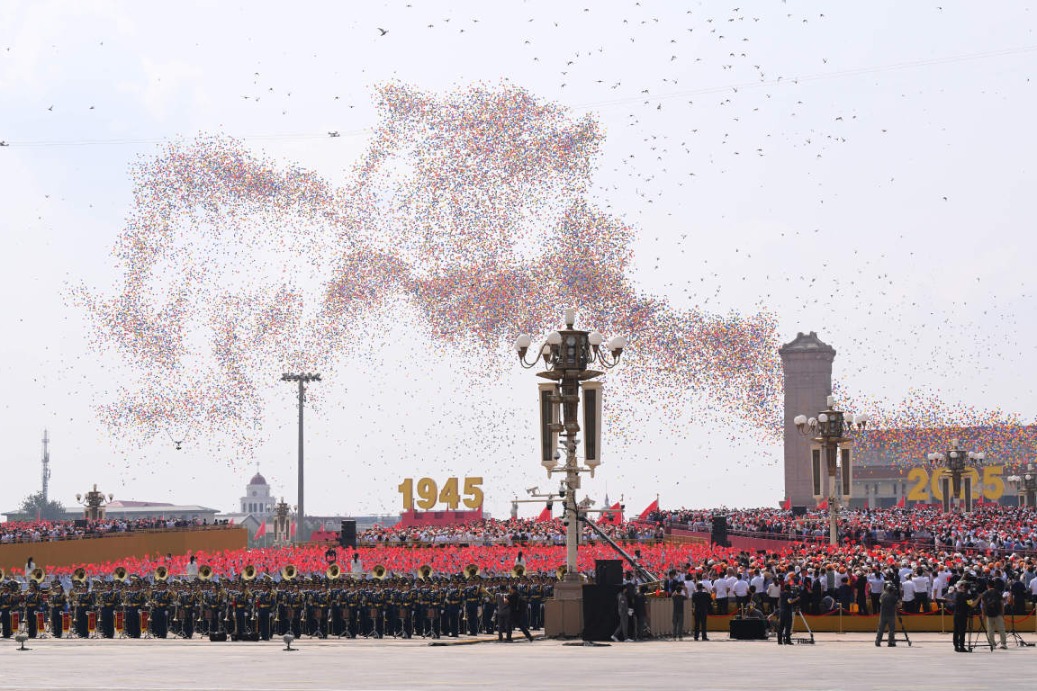World needs right WWII narrative

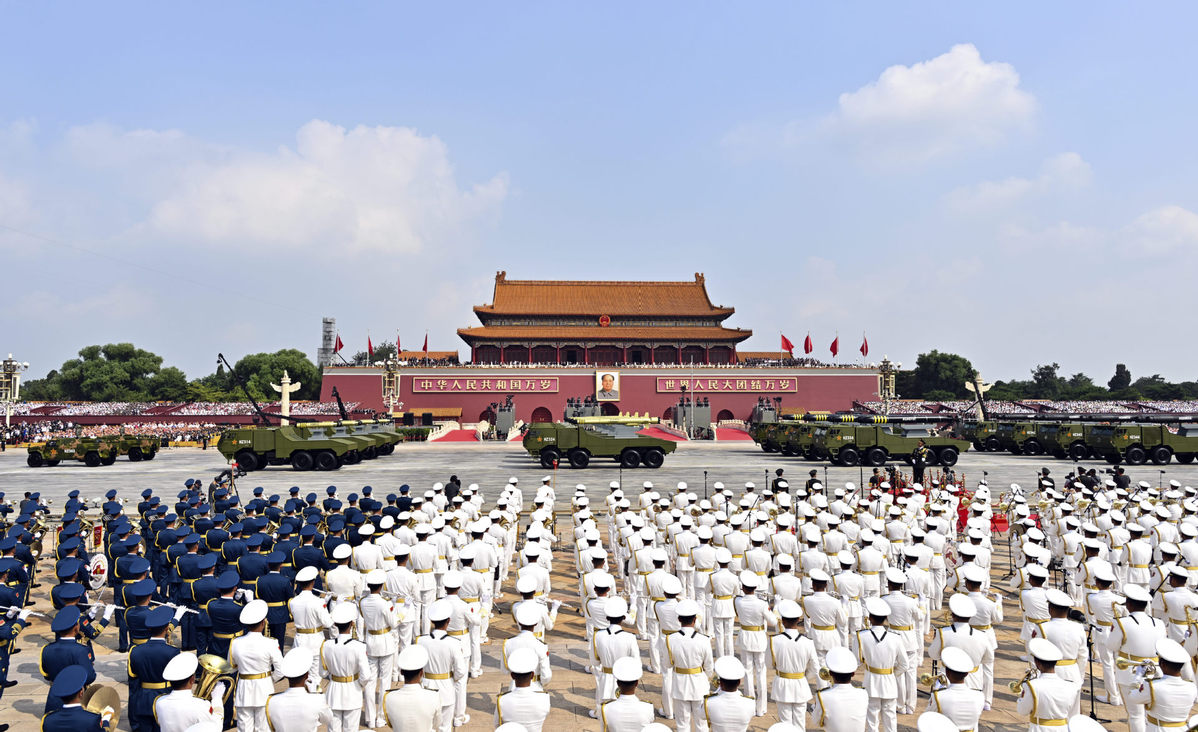
As the biggest and deadliest war in history, World War II involved most of the countries and regions of the world and claimed tens of millions of lives. But due to the Western-centric narrative of the war, China's immense contribution to the Allied victory in World War II has often been downplayed or overlooked.
With the rise of China's global status in recent years, however, some Western historians have begun to acknowledge the significance of China's great contribution to the ultimate victory in World War II, prompting a reassessment of the Western-centric narrative.
The "Age of Exploration" from the early 15th to early 17th centuries saw the capitalist Western powers leveraging their first-mover advantage to establish a colonial system across most parts of the world and foster a cultural bias that promotes the idea of the Western civilization's "superiority".
This colonial cultural prejudice has profoundly influenced Western historiography since then, leading to the gross underestimation of the protracted and complex Chinese People's War of Resistance Against Japanese Aggression (1931-45), and neglect of the strategic significance of the Chinese theater in tying down the fascist Japanese forces. For instance, British military historian B.H. Liddell Hart, in his work History of the Second World War, focused predominantly on the European and Pacific theaters, only scantly mentioning the Chinese front.
Among the different fronts of World War II, the Chinese theater lasted the longest and made huge sacrifices. It tied the majority of Japanese forces for 14 years, contributing immensely to the Allied powers' operations in the Pacific and other parts of Asia. This is a historical reality the Western-centric narrative cannot erase.
From the Sept 18 Incident staged by the Japanese army in 1931 to its surrender in August 1945, Tokyo deployed 97 infantry divisions, five aviation divisions, three tank divisions, along with substantial naval fleets and biological warfare units in China.
Japan thought it could quickly occupy the whole of China and use its resources and strategic advantages to establish its hegemony in Asia. But the strong resistance by the Chinese people thwarted Japan's design. By preventing Japan from achieving its goal in China, the Chinese people disrupted the Imperial Japanese Army's strategic deployment plan and strained its military resources in the Pacific and Southeast Asia, creating favorable conditions for the Allied counteroffensive.
Through their heroic resistance, the Chinese people demonstrated to the world their resolve and strength in fighting invaders, and earned the international community's respect and support. As noted by Japanese historian Koketsu Atsushi, while the atomic bombs dropped by the United States on Hiroshima and Nagasaki accelerated Japan's surrender, the continuous resistance by the Chinese people was the decisive factor in the defeat of Japan.
The main Eastern theater played a strategically crucial role in the World Anti-Fascist War — a fact that should never be forgotten. It is therefore necessary to change the Western-centric narrative of the war, and acknowledge China's invaluable contributions to the Allied victory in the World Anti-Fascist War.
The end of the Cold War prompted some Western historians to pay more attention to China's invaluable contribution to the victory in World War II. In his work, China at War: Triumph and Tragedy in the Emergence of the New China, British historian Hans van de Ven provides a detailed account of China's contributions to the global anti-fascist war and its crucial role in the Allied victory.
Another historian Rana Mitter has conducted deeper research into the history of the war of resistance. In his book, Forgotten Ally: China's World War II, 1937-1945, Mitter emphasizes that China's battlefield is a neglected yet vital part of World War II and acknowledges China's key role among the Allied nations. The book has become essential reading in the West for understanding the Chinese people's war of resistance, playing a vital role in challenging the Western-centric narrative.
Another book by Mitter, China's Good War: How World War II Is Shaping a New Nationalism, connects the memory of the war of resistance with the development of modern China, broadening Western perspectives on the country. The research works of both Van de Ven and Mitter have helped reshape Western understanding of the significance of the war of resistance and its lasting impact on New China.
Some scholars have also focused on China's contributions to the British forces in South and Southeast Asia. Representative works in this regard include Forgotten Armies: Britain's Asian Empire and the War with Japan and Forgotten Wars: Freedom and Revolution in Southeast Asia by Christopher Bayly and Tim Harper. Both books acknowledge the role of Chinese workers and soldiers in the liberation of South and Southeast Asian countries, broadening the scope of the Chinese theater's influence and further signifying China's contribution to the Allied victory.
On the 80th anniversary of the victory in the Chinese People's War of Resistance Against Japanese Aggression and the World Anti-Fascist War, it is essential to rebuild a just historical memory.
As more and more Western scholars have begun to acknowledge China's historical contribution to the Allied victory, there is a growing call to break away from the Western-centric narrative. As such, Western historians and other scholars must reexamine the history of World War II and duly highlight China's contributions to the outcome of the war.
The author is an associate professor at the School of History and Culture, Liaoning Normal University. The views don't necessarily reflect those of China Daily.
If you have a specific expertise, or would like to share your thought about our stories, then send us your writings at opinion@chinadaily.com.cn, and comment@chinadaily.com.cn.

















